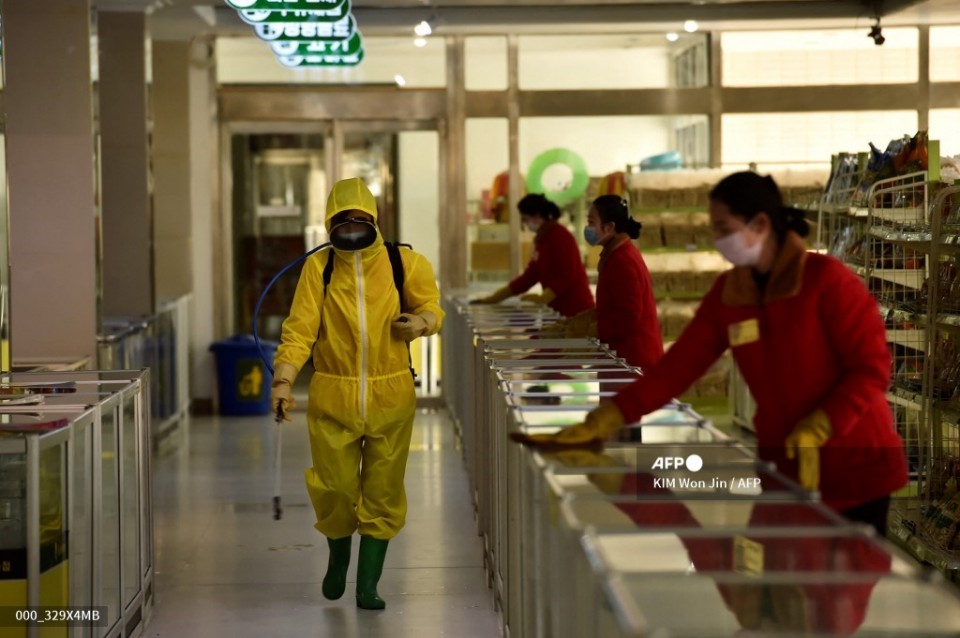
The United Nations voiced alarm Tuesday at the human rights implications of North Korea’s response to the massive coronavirus outbreak in the country.
Leader Kim Jong Un has ordered nationwide lockdowns to try and slow the spread of the disease through the country’s unvaccinated population, and deployed the military after what he has called a botched response to the outbreak.
“The latest restrictions, which include putting people under strict isolation and imposing further travel restrictions, will have dire consequences for those already struggling to meet their basic needs,” UN rights office spokeswoman Liz Throssell told reporters.
“We urge the… authorities to ensure that all measures adopted to tackle the pandemic are necessary, proportionate, non-discriminatory, time-bound and strictly in line with international human rights law,” she said.
Authorities should evaluate “the impact of any measures on vulnerable populations, taking into account experience elsewhere in effectively addressing the pandemic and to mitigate any adverse impact”.
A total of 56 deaths and nearly 1.5 million cases of “fever” have been reported in North Korea since the country announced its first Covid case a week ago, according to the official Korean Central News Agency (KCNA).
North Korea’s leader has slammed healthcare officials for their failure to keep pharmacies open, and has put himself front and centre of the response, saying the outbreak is causing “great upheaval”.
Throssell also reiterated a call from the UN rights chief, Michelle Bachelet, for countries “to relax sanctions to enable urgent humanitarian and Covid-related assistance” to the impoverished country.
North Korea has one of the world’s worst healthcare systems, with poorly-equipped hospitals, few intensive care units, and no Covid treatment drugs or mass testing ability, experts say.
“We encourage the DPRK as a matter of urgency to discuss with the UN the opening of channels for humanitarian support, including medicines, vaccines, equipment and other life-saving support,” Throssell said.
“We also urged authorities to facilitate the return of UN and other international staff to the DPRK to assist in the provision of support, including to vulnerable populations and those living in rural and border areas.”
vog/nl/rjm/jv
© Agence France-Presse







